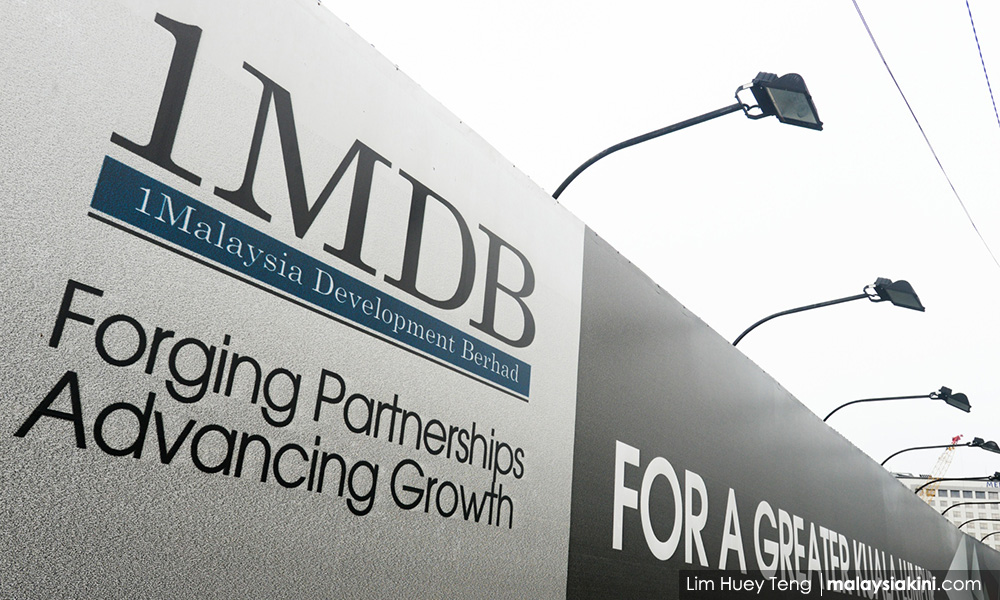
The statement by Swiss MP Carlo Sommaruga’s party on the restitution of 1MDB-linked funds seized by the Swiss government speaks volumes about the impression that the international community has of the Malaysian government under the current leadership of Prime Minister Najib Abdul Razak.
Whereas in the past, the international community had called Dr Mahathir Mohamad “recalcitrant” or a Malaysian maverick, it was only an attack on an individual. Dr Mahathir has since turned on a new leaf, and he has regained our respect.
But, these latest comments from the Swiss should wake us up.
It is now the entire government that has been called into question, and as a Malaysian, I am in full agreement with Peter Hug, the international secretary of the Social Democratic Party of Switzerland, who said that the funds, if returned, would be channelled through Malaysian NGOs to "guarantee the corruption-free financing of programmes for public interest".
It reminds me of a Christian saying from the Book of Proverbs: “Righteousness exalts a nation, but sin is a reproach to any people.”
Unless we, as a people are determined from now on to exercise high integrity, we will not become a model nation to the world. Prudence in spending the country’s coffers is definitely not the order of the day.
As pointed out by Selangor Menteri Besar Mohamed Azmin Ali, 1MDB’s debt of RM42 billion could last for four generations. In order to get out of this doldrums, we have to rally behind a new federal government to rebuild the nation to become great again.
This is not an impossible miracle as we have seen through the Japanese industrial revolution after the Second World War. It will be sheer hard work that will eventually help us regain the respect of the international community.
I have a lot of suggestions for the Swiss on how the money should be utilised to help the Malaysian people, but they are broadly categorised under two priority areas:
Education for young Malaysians
Investing into the education of the younger generation will help raise the quality of human resources.
Scholarships will help a lot of young people from lower to middle income groups who want to pursue a good education overseas. Due to the rising costs of living and drop in the exchange rate, middle-income parents are finding it very difficult to send their children overseas.
Education is not just about pursuing a paper qualification. It is about the exposure one gets, and there is nothing like exposure to a totally new culture and learning from some of the best professors in the world.
Having studied in Australia, I cannot agree more that this was the best part of my years growing up, which helped to shape my outlook in life. The people I had the opportunity to interact with have helped me to look at the bigger picture.
For those who prefer to remain in local institutions of higher learning, I will also salute them, but it is not cheap either. Based on comparisons made by a friend who has a daughter in Ireland, and another daughter who is studying locally, she has to pay more for a local degree.
Scholarships can be given as part of a joint Swiss-Malaysia effort to boost the quality of education for our young people. My eldest is only nine; therefore, I am speaking on behalf of a lot of young people whom I may not even know.
Since homeschooling is becoming a major trend in Malaysia, the Swiss government can consider sponsoring the setting up of good laboratory facilities on a shared basis to cater to these homeschoolers.
The money can also be used to set up more libraries in the rural areas to help boost the literacy of the rural poor, especially in Sabah and Sarawak. Computer literacy will also help them to develop a useful set of skills that will make them employable by the time they finish their education.
Medical treatment
Cancer is the leading cause of death in Malaysia. Having gone through treatment myself, I know how expensive it can get especially for patients who are in both the middle and lower-income group.
Because in Malaysia, free medical treatment is only given to civil servants and senior citizens, most Malaysians cannot qualify. The costs of radiotherapy and chemotherapy can easily hit RM50,000, and this is no small amount of money even for the average income earner.
Besides, the insurance companies would often tell us that under medical insurance, they do not accept claims for cancer treatment unless it involves hospitalisation. And when we go to the public hospitals, we are often told these days that they are unable to carry out blood tests due to lack of government funds.
This is an area of great need. I pray that part of the money can be channelled towards patients who need funds for treatment.
There are also other kinds of disease plaguing the older Malaysians. For example, diabetes. A monthly bill for dialysis is hardly affordable for most middle-income families, especially when the patient is also a sole income earner.
Yes, to Sommaruga and his fellow lawmakers, idea after idea can flow but I suppose just the two ideas above would help thousands of Malaysians.
STEPHEN NG is an ordinary citizen with an avid interest in following political developments in the country since 2008. -Mkini



No comments:
Post a Comment
Note: Only a member of this blog may post a comment.